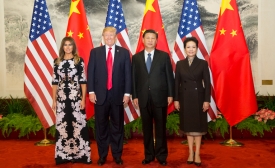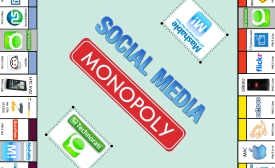U.S.-China relations

A Twitter account run by the U.S. ambassador to China may demonstrate a new approach to shaping public perception via digital diplomacy.

Members of the foreign policy, military, academic and business communities write to President Trump and Congress about the U.S.'s relationship with China.

"Subnational Diplomacy, Climate Governance & Californian Global Leadership," highlights the growing power of subnational entities on issues like climate change.

A new report examines the emerging landscape of bottom-up global climate governance, stemming from such subnational levels as the State of California.
A comedy center in Beijing fosters U.S.-China exchange.

This article analyzes the effects and impact of new media technologies on traditional public diplomacy practices through the lens of the U.S. Embassy in China's use of the micro-blogging platform Weibo.







